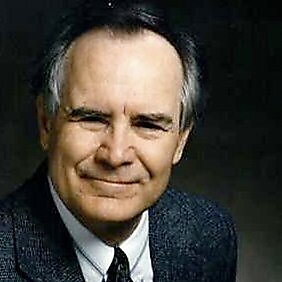Economist James Gwartney passed away at age 83 on Sunday. He was a prolific academic, a colleague (he was an adjunct scholar at Cato), and a real gentleman. Bob Lawson and Richard Vedder wrote a nice appreciation of Jim in the Wall Street Journal.
Jim spent most of his career as a professor of economics at Florida State University. During that time he influenced generations of economists who have since become accomplished professors. He did so by mentoring them and through the publication of countless academic articles and his highly successful textbook Economics: Private and Public Choice, and other books he coauthored such as Common Sense Economics and the annual Economic Freedom of the World report.
He was influential also through his involvement in the Public Choice Society and the Association of Private Enterprise Education, of which he had served as president, and which has grown into an alternative to the more established economics associations that Jim correctly considered had become insular, elitist, and ideologically narrow. Last year, the Johns Hopkins Institute for Applied Economics published a lengthy and informative interview with Jim about his life’s work.
Jim was also a long‐time friend and colleague of a number of us at Cato. His involvement with the institute began in the early 1980s when he worked most closely with my Cato colleague Jim Dorn. He spoke at numerous Cato events and wrote countless articles in the Cato Journal on a range of topics that reflected his broad interests—the size of government, the flat tax, educational choice, monetary policy, central planning, and so on.
A major interest of Jim’s was the study of public choice, an economic approach to analyzing the political process as it works in the real world and that takes into account government failure. Writing in Cato Policy Report about a decade ago, Jim celebrated the so‐called public choice revolution in his field, but lamented its neglect at elite universities, which hold an enormous influence on students and the economics profession: “As a result, the mainstream approach is leaving both current students and the general public with a misleading, false, and romantic view of government and the operation of the democratic political process.”
It is through the Economic Freedom of the World report, which is published by the Fraser Institute and co‐published in the United States by Cato, that I began interacting and working with Jim beginning in the mid‐1990s. The report, of which he is a co‐founding author, has served as an invaluable and effective empirical tool to show policymakers, journalists, and the public at large that there is a strong relationship between economic freedom and prosperity, as well as a range of improvements in human well‐being. Scholars have used the index in more than 1,300 academic papers.
One example of the report’s influence is through the work of our friend and colleague Andrei Illarionov, whose institute in Russia co‐published the report early on. When Vladimir Putin became president and Andrei became his chief economic adviser, the need for economic freedom became a Kremlin theme and was included in Putin’s state of the nation speech.
Though Russia eventually turned away from freedom, it did achieve some important pro‐market reforms in the early Putin years, including the implementation of a flat tax, a reform that Jim advocated during a visit to Moscow (which culminated in a meeting with Putin and a group of Western economists) upon Andrei’s invitation.
Another example of the influence of the economic freedom index is that of Argentina’s newly elected president Javier Milei. When Milei explains in countless national interviews and speeches that the most economically free countries are eight times richer than the least free, his reference is the Economic Freedom of the World report, which he explicitly cites here in an academic lecture before he was president (min. 31). I could give many more examples of the index’s influence.
Jim was always very supportive of our work at Cato. I and others benefitted from his guidance in the creation of the annual Human Freedom Index (co‐published by Cato and Fraser), which I co‐author and which is an outgrowth of the economic freedom index. Jim participated in the numerous seminars in the United States and Europe leading up to the report’s creation and was enthusiastic about its potential.
Jim began going blind more than twenty years ago at around the time he served for a stint as chief economist at the Joint Economic Committee of the US Congress. His deteriorating vision did not seem to diminish his high level of productivity or his good cheer for the remainder of his life, however.
Though he became fully blind, it was always a mystery to the rest of us how he kept up his pace or could recite the minutest details of new studies in lengthy presentations he would give on various topics. I’ll never forget that when I asked him how he managed to keep a good attitude and a high level of output, he responded that “there is never a great time to be blind, but there has never been a better time than now,” going on to cite helpful new technologies for the blind.
Jim Gwartney was an inspiration because of his scholarship, his character, and his friendship. May he rest in peace.

